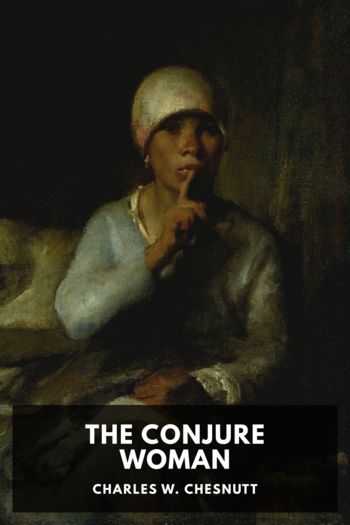The Lives of the Caesars, Suetonius [best book club books for discussion .TXT] 📗

- Author: Suetonius
Book online «The Lives of the Caesars, Suetonius [best book club books for discussion .TXT] 📗». Author Suetonius
Having thus impoverished himself, from very need he turned his attention to pillage through a complicated and cunningly devised system of false accusations, auction sales, and imposts. He ruled that Roman citizenship could not lawfully be enjoyed by those whose forefathers had obtained it for themselves and their descendants, except in the case of sons, since “descendants” ought not to be understood as going beyond that degree; and when certificates of the deified Julius and Augustus were presented to him, he waved them aside as old and out of date. He also charged that those estates had been falsely returned, to which any addition had later been made from any cause whatever.413 If any chief centurions since the beginning of Tiberius’ reign had not named that emperor or himself among their heirs, he set aside their wills on the ground of ingratitude; also the testaments of all others, as null and void, if anyone had said that they had intended to make Caesar their heir when they died. When he had roused such fear in this way that he came to be named openly as heir by strangers among their intimates and by parents among their children, he accused them of making game of him by continuing to live after such a declaration, and to many of them he sent poisoned dainties. He used further to conduct the trial of such cases in person, naming in advance the sum which he proposed to raise at each sitting, and not rising until it was made up. Impatient of the slightest delay, he once condemned in a single sentence more than forty who were accused on different counts, boasting to Caesonia, when she woke after a nap, of the great amount of business he had done while she was taking her siesta.
Appointing an auction, he put up and sold what was left from all the shows, personally soliciting bids and running them up so high, that some who were forced to buy articles at an enormous price and were thus stripped of their possessions, opened their veins. A well-known incident is that of Aponius Saturninus; he fell asleep on one of the benches, and as the auctioneer was warned by Gaius not to overlook praetorian gentleman who kept nodding to him, the bidding was not stopped until thirteen gladiators were knocked down to the unconscious sleeper at nine million sesterces.
When he was in Gaul and had sold at immense figures the jewels, furniture, slaves, and even the freedmen of his sisters who had been condemned to death, finding the business so profitable, he sent to the city for all the paraphernalia of the old palace,414 seizing for its transportation even public carriages and animals from the bakeries; with the result that bread was often scarce at Rome and many who had cases in court lost them from inability to appear and meet their bail. To get rid of this furniture, he resorted to every kind of trickery and wheedling, now railing at the bidders for avarice and because they were not ashamed to be richer than he, and now feigning regret for allowing common men to acquire the property of princes. Having learned that a rich provincial had paid those who issued the emperor’s invitations two hundred thousand sesterces, to be smuggled in among the guests at one of his dinner-parties, he was not in the least displeased that the honour of dining with him was rated so high; but when next day the man appeared at his auction, he sent a messenger to hand him some trifle or other at the price of two hundred thousand sesterces and say that he should dine with Caesar on his personal invitation.
He levied new and unheard of taxes, at first through the publicans and then, because their profit was so great, through the centurions and tribunes of the praetorian guard; and there was no class of commodities or men on which he did not impose some form of tariff. On all eatables sold in any part of the city he levied a fixed and definite charge; on lawsuits and legal processes begun anywhere, a fortieth part of the sum involved, providing a penalty in case anyone was found guilty of compromising or abandoning a suit; on the daily wages of porters, an eighth; on the earnings of prostitutes, as much as each received for one embrace; and a clause was added to this chapter of the law, providing that those who had ever been prostitutes or acted as panders should be liable to this public tax, and that even matrimony should not be exempt.
When taxes of this kind had been proclaimed, but not published in writing, inasmuch as many offences were committed through ignorance of the letter of the law, he at last, on the urgent demand of the people, had the law posted up, but in a very narrow place and in excessively small letters, to prevent the making of a copy. To leave no kind of plunder untried, he opened a brothel in his palace, setting apart a number of rooms and furnishing them to suit the grandeur of the place, where matrons and freeborn youths should stand exposed. Then he sent his pages415 about the fora and basilicas, to invite young men and old to enjoy themselves, lending money on interest to those who came and having clerks openly take down their names,





Comments (0)